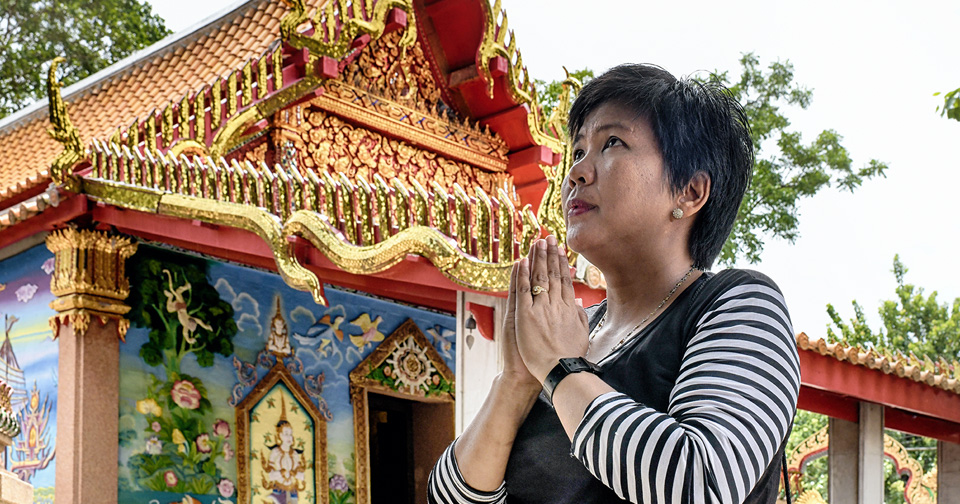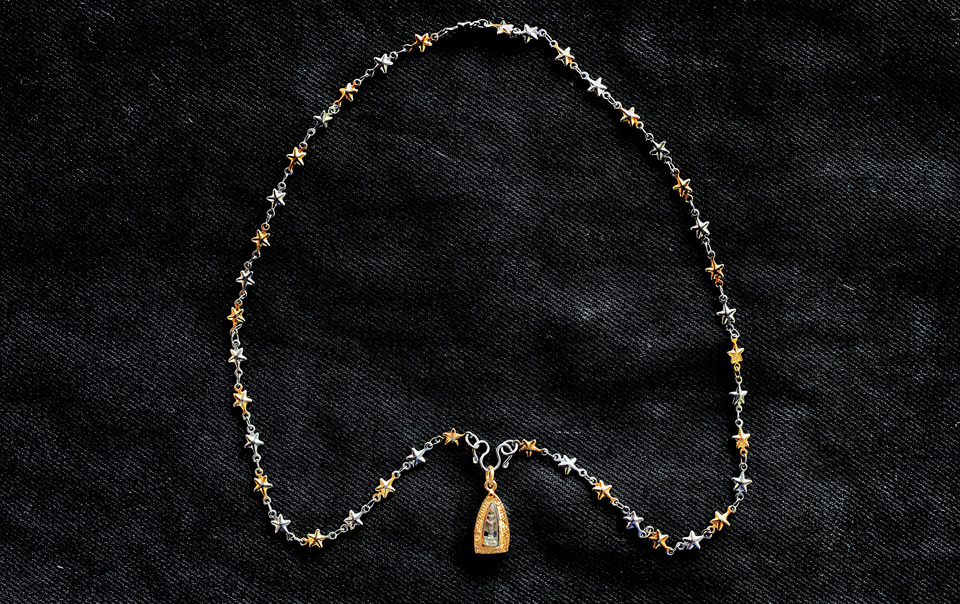Journeys out of the Ordinary | Thida’s story
“Help is available - speak up to end violence.” —Thida Thein, Myanmar
Date:

I came to Thailand from Myanmar 12 years ago. Although I was married with three young sons at the time, I came by myself. I got a job in a clay pot factory where I had to work very hard but was glad to have a job. I lived in the workers’ quarters with other migrant workers, but I never felt safe. Because I was alone, men used to knock on my door at night. I never opened the door to them. And the door didn’t lock properly, so I used to put empty bottles just inside it so if someone tried to get in, the bottles would get knocked over and make noise and wake me up.
Later I moved to Bangkok and found a job as a domestic worker, and my employer offered to hire my husband too. He initially refused, but eventually he came to join me and work.
That’s when the violence started. My husband and I had been apart for three years and he had been unfaithful. When I found out, I couldn’t accept it and he became angry and abusive. Our three sons had come to join us in Thailand too, and I tried to stay quiet during the fights because we lived in migrant quarters with very little privacy; I couldn’t bear the idea of the neighbours hearing us.
Then our two younger sons went back to Myanmar to study, and my husband became even more violent. He beat me and kicked me and one time he choked me so hard I couldn't speak for five days. It was then that I finally went to the hospital. A nurse recorded the incident, and I was contacted to join a seminar on violence against women in the workplace and in the home. The counsellors said I should not be impulsive, because of the children, but if the violence didn't stop, they would talk to my husband. And they did talk to him, but the violence didn't stop.
We lived in a small room at the time and my oldest son still lived with us. He was about 14 at the time. One night my husband began to beat me, but this time my son woke up and came to stop him.
Something changed that night. I had an ally, and I fought back for the first time. That night was the beginning of the end [of the violence]. I wasn’t alone anymore.
At the time I was also pregnant with my daughter, but my husband claimed the child was not his and we soon divorced. My daughter is now five years old and my life is good. My children are my joy.
Now that I am working for an organization that supports migrant women like myself, I feel very fulfilled. I get funding from the local migrant women’s association to organize meetings where we discuss our rights. I also give trainings on practical issues for women experiencing violence, like using GPS on their phones to get picked up and receive assistance if they must leave their homes.
I will never stop telling women they must speak up and get help. It has become my passion.
My message to the next generation of migrant women/survivors of violence is: When you keep quiet, and if the issue is in darkness, the violence will continue. So, if you face violence, you must speak up. There are places to go for help. But if you don't speak, you won't be able to access the help and you will suffer while the wrong-doer benefits from your silence.
My message to men is: “You become a human being because of a woman: your mother. So, if you abuse a woman, it's like abusing your mother. You should treat all women as your mother, sister or aunt and not as a weak sex that you can dominate.”
Object description:
Before migrating, my mother gave me this necklace with the image of [Buddhist holy figure] Siwalee, who brings luck and prosperity especially for travellers. I wore it every day during my migration journey.
Each woman has the right to decide if she wants to report violence or not. All women will have different needs as a result of the violence they have experienced. Each woman will also have different strengths and coping mechanisms. Safe and Fair provides training to frontline service providers on the key principles in service provision. Service providers should provide women migrant workers affected by violence with information on all options available to them and support them to make a choice that is right for them.
